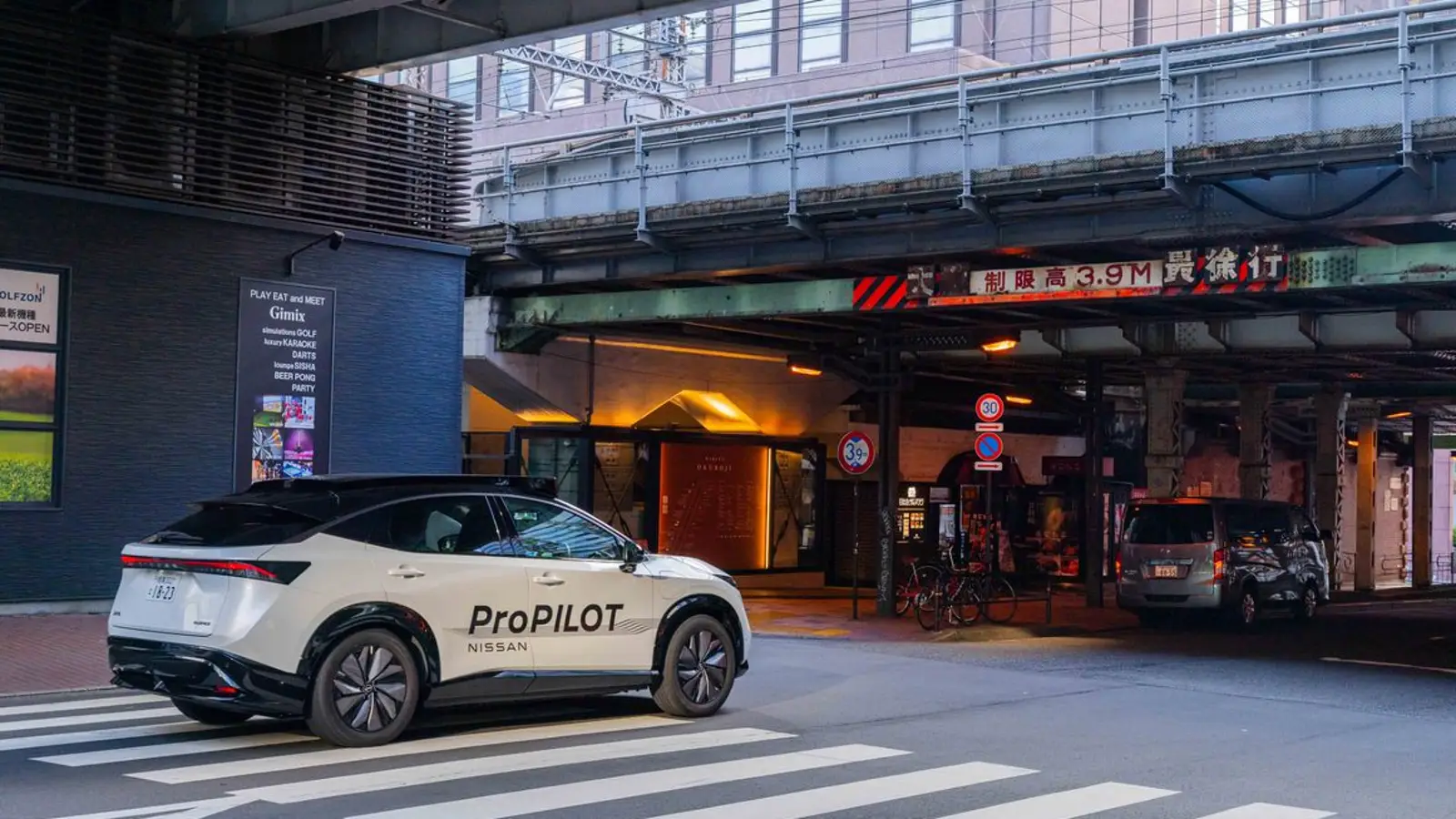Nissan unveils next-generation ProPILOT with AI and LiDAR

Nissan showcased its next-generation ProPILOT driver-assist system with Wayve AI and new LiDAR, set for launch in Japan in FY27, aiming for safer urban driving.
Nissan has taken a decisive step in advancing driver-assistance technology by unveiling the next generation of its ProPILOT system. Demonstrations were staged in the heart of Tokyo using all-electric Ariya prototypes, equipped with a sophisticated sensor suite and Wayve’s artificial intelligence. The company confirmed that mass-production models featuring the system are scheduled to launch in Japan during fiscal year 2027.
At the core of the new ProPILOT is Wayve’s AI Driver, built on the principle of embodied AI. Instead of reacting to isolated objects, it interprets the road as a whole evolving scene. This enables the car to anticipate how traffic situations may unfold and to respond in real time with the fluidity of an experienced human driver.
Safety is reinforced by Nissan’s Ground Truth Perception, which integrates a roof-mounted LiDAR with 11 cameras and five radars. While Nissan has not disclosed exact performance figures, the company emphasizes the sensor’s ability to detect objects at greater distances and under challenging conditions such as nighttime driving or higher speeds.
The development of ProPILOT reflects a steady evolution: from single-lane highway support to multi-lane assistance, and now towards navigating the complexities of urban streets. The system remains classified as SAE Level 2, meaning the driver must stay behind the wheel and be ready to intervene at any moment. In Japan, this level fits within the current regulatory framework, unlike higher levels of autonomy that require dedicated approvals.
Meanwhile, competitors are pushing forward at Level 3. Mercedes-Benz’s Drive Pilot has been approved in Germany and in U.S. states such as California and Nevada, and BMW has introduced L3 functions in its 7 Series. Tesla, often at the center of safety debates, continues to offer a system that demands constant driver supervision. Against this backdrop, Nissan’s focus on urban scenarios and its partnership with Wayve stand out as a calculated move to show that AI can handle not only highways but also pedestrians and congested city traffic.
The financial context adds another layer to the story. In fiscal year 2024, Nissan reported a net loss of more than 670 billion yen with an operating margin below one percent. For the company, innovations like ProPILOT may serve as tools to strengthen competitiveness. The Ariya platform, already facing market headwinds in the U.S., becomes both a testbed and a symbol of Nissan’s push into the future.
The Tokyo demonstrations underline that full-scale adoption still lies ahead. Yet the very act of testing the system publicly in a complex metropolitan setting highlights Nissan’s ambition. If the FY27 timeline holds, drivers in Japan could soon experience a technology designed to mimic the confidence of a skilled human driver while keeping ultimate responsibility in human hands.
Mark Havelin
2025, Sep 23 04:38


